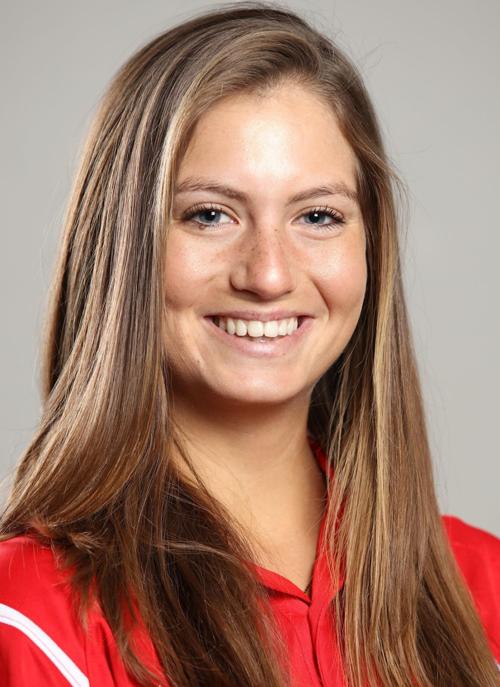It didn’t take long for Talya Zandberg to adjust to the United States and college tennis.
One week into the spring semester, her first at the UA, the Israeli-born Zandberg got her routine down: practice, school and study.
By the third week, she had blended in with the team.
It showed on the court, as Zandberg won both her singles and doubles matches against Northern Arizona and Boise State.
Zandberg was named Pac-12 player of the week on Tuesday after going 2-0 in singles play over the weekend. She beat Gemma Garcia of the University of San Diego 6-1, 6-1 and followed that up with a 6-1, 6-3 victory over Valentina Mokrova of Grand Canyon. Zandberg is now 5-0 in singles play.
Zandberg is UA’s 10th all-time conference player of the week.
“It’s tough to come in mid-year to find your confidence and be secure in your own spot,” said UA coach Vicky Maes, whose team is 5-0 heading into Friday’s match against Nevada at the Robson Tennis Center. “She brings a lot of positives. She is a true freshman but will be turning 21, so is more mature.
“Talya is a sweet girl; you would expect her to be tough. But she is feisty on the court. She has earned the respect of her team. She is competitive but in a quiet way. She is doing her thing, like a silent killer. Her personality … she’s observing, analyzing, and then draws conclusions.”
Zandberg’s personality is a result of her training. All Israeli citizens must serve in the Israeli Army for two years. Zandberg finished her service before coming to Tucson.
“I’m more mature and it feels like I have more confidence than I did two years ago and that’s helped,” said Zandberg. “It was tough, but a fun experience. After you’ve been through it you think about it as positive. I am more independent. I know how to react in situations that can be tense. When something bad happens here, it’s not the end of the world.”
Zandberg grew up in Tiberias, Israel, located on the western edge of the Sea of Galilee. Zandberg and her family often had to stay in shelters to protect themselves from a barrage of rockets, a result of the ongoing Israeli-Palestinian conflict. Zandberg is happy that things are calmer now.
“There is always small stuff you need to be prepared for,” she said. “It’s a different view here than in Israel, but I understand that.”
In Israel, which has seen many wars and two Intifadas since its birth as a nation, seeing soldiers on city streets carrying guns is not unusual. Patrolling was part of Zandberg’s role in the Air Force, though she primarily worked to log flight data into computers. Then there was kitchen clean-up duty, which Zandberg hated as it interfered with her tennis.
Zandberg served in an athlete’s position, meaning she would spent a few hours with the army and a few hours playing tennis each day. She was trained by her personal coach, Iram Peled.
She still had to participate in boot camp, which was “just very intense,” she said.
“We learned how to shoot, how to be a soldier, the rules, and how to react. It’s a different world than our lives,” she said.
Zandberg is one of five Wildcats players to grow up outside the United States. The Belgian-born Maes said she likes to bring in players with different backgrounds and cultures to expand the perspective of the American players, who have no idea what it’s like to grow up in challenging environments.
Maes and the Wildcats make it easy for families to follow their daughters stateside. Starting this year, the UA is streaming all its matches over the internet. Zandberg’s mom, Michal, her dad, Avihy, and her brothers Tamir and Yair and his wife, recently woke up in the middle of the night to watch her play.
“Talya’s brother sent a photo of every member of the family watching her on a (streaming) device,” said Maes. “I cried when I saw this. It is so heart-warming and special. It’s why we do what we do.”





